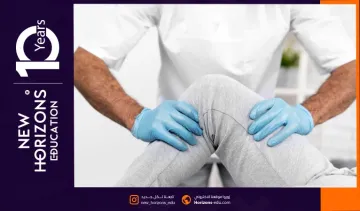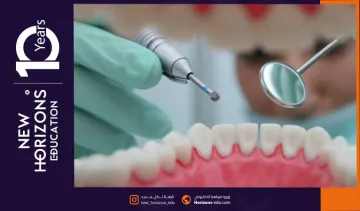
Human medicine specializations in Turkey is considered one of the most important specialties in the current era, due to the importance of the work doctors perform, both humanitarianly and religiously. The importance of workers in various medical sectors has become clear during the recent global health crisis, as doctors have been the front-line soldiers in the fight against the pandemic!
If you are interested in studying Human medicine specializations in Turkey, this article will be beneficial for you as we will offer all information you need about studying Human medicine specializations in Turkey including: advantages, duration of studying and admission requirements. Keep reading.

Read also: Advantages of studying in Turkey
Turkey is experiencing continuous development across all sectors, especially the medical sector. Its universities have developed significantly in a short time, making them among the forefront universities offering various fields of human medicine and the most advanced in teaching.
Studying human medicine specializations in Turkey involves several stages. It usually begins with a preparatory year to master a foreign language, such as studying human medicine in Turkish, or studying medicine in English in Turkey.
Medical students then typically begin studying the general sciences in their first year, followed by the foundations and introductions to each specialty within human medicine, until the student graduates as a specialist in a prestigious medical specialty.
The most popular Human medicine specializations in Turkey include:
Read more: Studying medicine in Turkey for Arab students
It is certain that each medical specialty requires a specific period, which varies from one medical field to another depending on the scientific subjects and therapeutic applications that require a long study period for a physician to become sufficiently specialized in their field.
However, it can be said that the duration of study for medical specialties in Turkey ranges from 4 to 7 academic years.
There are many important practical fields available for a physician studying at a medical school in Turkey.
After a Turkish medical student completes his studies at a Turkish medical college in his specialty, and based on the experience he gains during his practical training period, the training he receives in university hospitals, and the years of experience he acquires, he will have a variety of job opportunities in many sectors, the most important of which are the following:
Studying Human medicine specializations in Turkey for foreign doctors. We refer here to doctors who have completed their bachelor's degree outside of Turkey and wish to specialize in a medical field at Turkish universities.
First and foremost, doctors must have their university degree and all academic documents validated. We have detailed how to validate a medical degree in Turkey in this article in the following paragraph:
After passing the STS exam and obtaining medical degree equivalency, which means the degree is equivalent to medical degrees issued by Turkish universities, the doctor must prepare to take the following tests:
The TUS exam is administered by the Ministry of Higher Education in Ankara, and students register for the exam themselves. The TUS exam includes questions on the following topics:
Fields of Human Medicine
The purpose of the TUS exam is to determine the medical specialty in which a physician excels based on the applicant's total score.
The Turkish Ministry of Higher Education determines the medical specialty appropriate for the applicant's knowledge, after which they can begin their specialization in one of the medical specialties in Turkey.
As for doctors who have completed their bachelor's degree at Turkish universities, the requirements for studying human medicine in Turkey are the same as those for Turkish doctors.
This means there is no need for certification equivalency or passing the STS exam. Simply passing the TUS exam is sufficient and then you can begin your medical studies.
Read also: Costs of Studying Medicine in Turkey 2025
Turkish universities offer a wide range of medical specialties, but interest and demand are increasing for certain human medicine specialties, such as:
Dermatology, pediatric psychiatry, cosmetic medicine, radiology, ophthalmology, and nuclear medicine.
Admission requirements for medical school vary from one university to another, depending on its classification and the degree awarded.
As previously explained, studying medicine in Turkey is an advanced and internationally recognized program.
Its drawbacks include the difficulty of studying medicine in Turkey completely free of charge for students with limited income, except for students accepted into the Turkish scholarship program.
Even public universities charge annual fees, while admission requirements are not available to everyone, including the high required grades, aptitude and language tests, and seats available to international students.
Read also: Disadvantages of studying in Turkey
Here are the steps to prepare and enroll in medical schools in Turkey, step by step:
Do you want to study medicine at a private or public Turkish university? And do you need to pass the YÖS exam? Check the admission requirements, then move on to the next step.
Enrolling in private medical colleges in Turkey is easier. All you need is a high school diploma with a GPA of at least 85%, along with a transcript and a copy of your passport.
If you're interested in enrolling in a private Turkish university, we recommend contacting a Turkish private university agent, such as the New Horizons team, to ensure smooth, hassle-free admission for free.
When enrolling in Turkish universities, you receive preliminary acceptance conditional upon payment of a portion of the tuition fees. Once you pay the reservation fee, you receive final acceptance.
Upon final acceptance, you can obtain a study visa to Türkiye from the nearest Turkish consulate. Upon arrival, you must complete the final registration in person, after which you can begin studying medicine in Turkey.
At the end of this article, we hope we've answered your question: Why study human medicine? We've also clarified many aspects of this unique specialty. If you have any questions, leave it in the comments section below and we're happy to answer any questions you may have.
Resources
Factors affecting the choice of medical specialties in Turkey
I'm a passionate Web Content Writer with over 5 years of experience in creating SEO-friendly content in both Arabic and English. I specialize in writing clear, engaging, and reader-focused content that not only ranks on search engines but also speaks directly to the audiences across various industries, including healthcare, education, religion, tourism, and professional services .
After many years of working on registering thousands of students in Turkish universities, and answering an unlimited number of questions about studying in Turkey, these are the most important questions that concern students
Pharmacy, medicine, and engineering majors such as equipment engineering and chemical engineering are among the most prominent majors at Turkish universities. Many of these universities, such as Gelişim University, have achieved accreditation for the quality of education they provide.
You can easily study medicine in Turkey by enrolling in private Turkish universities, as they only require a score of 85% for admission, without passing the YÖS or proficiency in the language. The New Horizons team will help you with the registration process, step by step, for free.
Human medicine departments encompass all medical sciences, the most important of which are ophthalmology, pediatrics, cosmetic medicine, and cardiology.
Istanbul Medipol University, Al-Biruni University, and Bahçeşehir University are the best private Turkish universities for studying human medicine. They offer comprehensive theoretical programs and have advanced, internationally recognized training hospitals.
Yes, studying human medicine requires high levels of memory, concentration, time management, and endurance. First, it requires many years of study, the ability to withstand pressure during practice and training, and a high level of concentration at all times.

How to study human medicine in Turkey? Is Turkey a good option for studying human medicine? You may...

Studying medicine for Iraqis in Turkey is one of the most attractive options for Iraqi studen...

How to study physiotherapy at Mudanya University? In our guide of studying physiotherapy at M...

The cost of studying dentistry in Turkey is the annual tuition fee paid by the student to the...